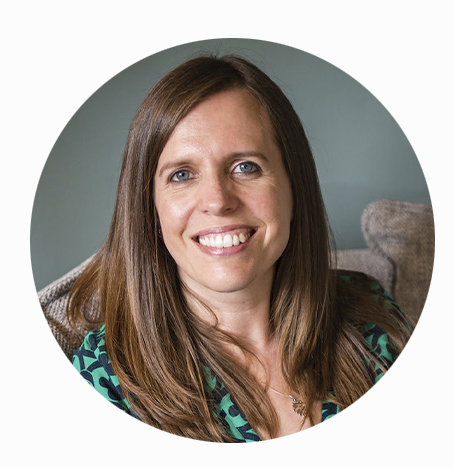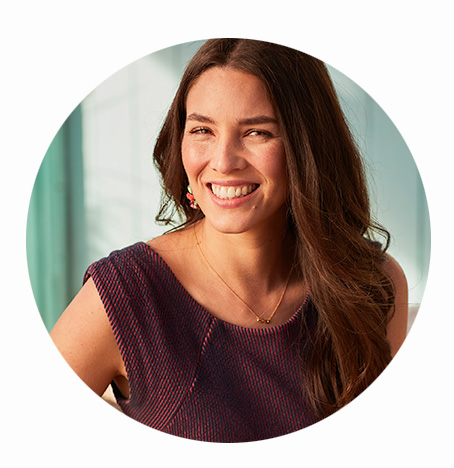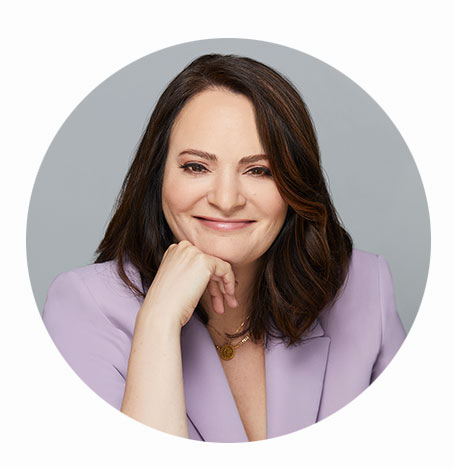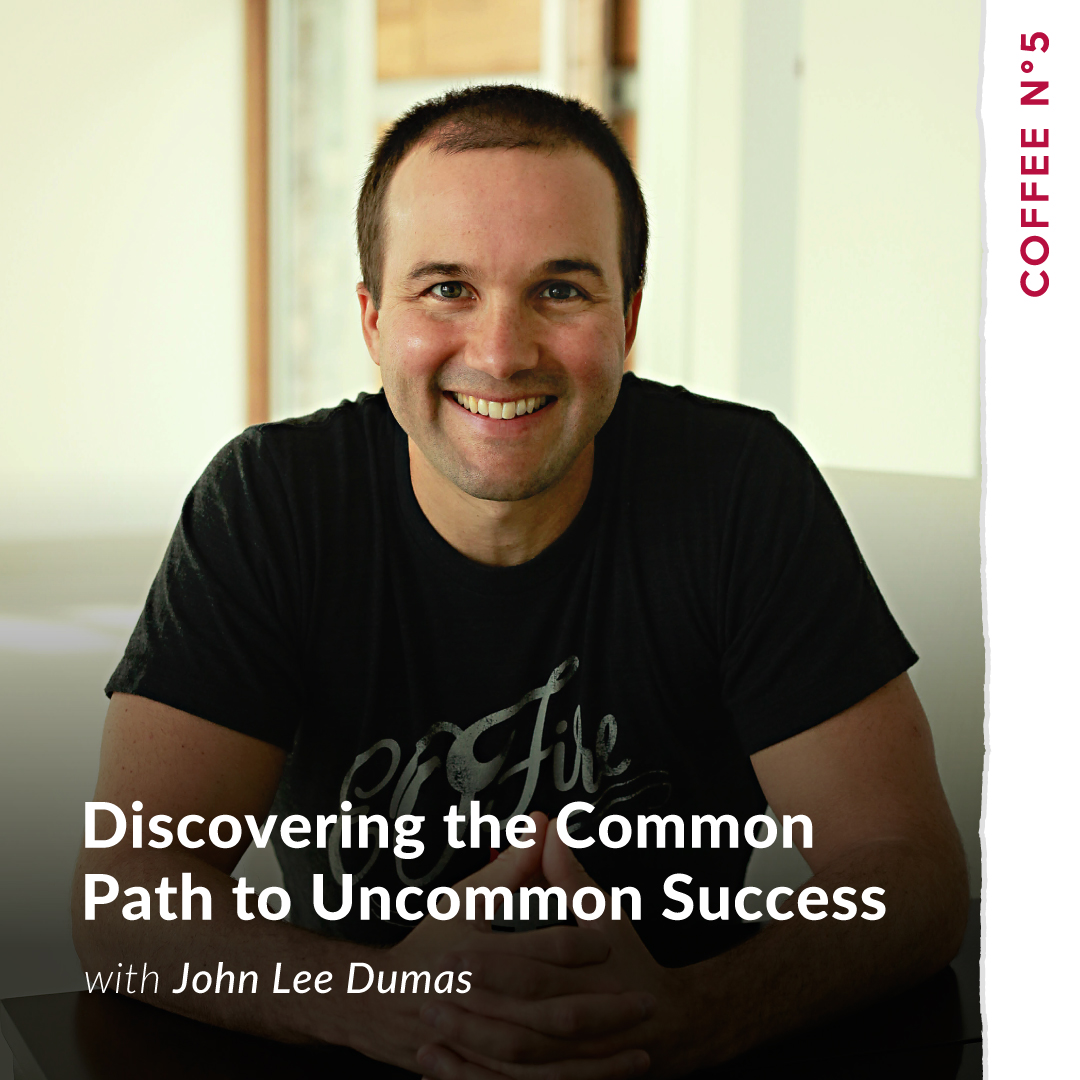Lara Schmoisman 0:05
This is Coffee Number Five. I’m your host Lara Schmoisman. Hey, you guys, welcome back to Coffee Number Five. And today I was thinking like, there are so many beauty lines out there. And when I started in this industry, I met a lot of people they say, Yeah, I have a beauty line. And I was like, it’s that easy to have a beauty line? How do you even start doing that? And then my clients were coming. I was oh, I didn’t know that I need marketing to have a beauty line. So today, I want to start from the beginning. And we have a special guest and I apologize in advance if I mispronounce your last name, Lorraine Darllmeier. Yeah. Oh, nailed it. So welcome to Coffee Number Five, thank you so much. Today is you’re based in the UK and you help so many people to formulate their brands, and their lines of products and cosmetics. So let me explain to us what’s a formulator? And what do you do and how you even start with a cosmetics line.
Lorraine Dallmeier 1:17
Okay, lots of questions. Hi, I’m Lorraine Dallmeier. I’m the CEO of Formula Botanica. And we’re the online organic cosmetic formulation school. So we teach people how to make their own cosmetics skincare haircare a little bit of makeup as well using natural botanical ingredients. And then we teach them how to turn that into a business. Because you’re right, there are a lot of people out there who realize that this is their ticket out of their day job, they want to start their own business, they want to do something that they can really get ahold of, and that is easy and accessible. And a beauty line is typically it. So there are many, many 1000s of indie beauty entrepreneurs out there. Some of them keep their businesses very, very small. Some of them go meteoric and get bought up by the big players. And we have trained a significant proportion of them. So we have over 18,000 students, almost 19,000 and 183 countries at the moment, which is a mind blowing. And so we train them up to become formulators. And then we also have a business diploma. So we train them how to start their own beauty line with that
Lara Schmoisman 2:20
Let’s start from the beginning. I want to go step by step. So someone comes to you and say I have an idea for a beauty line, or I have an idea for a product. How do we how do you start?
Lorraine Dallmeier 2:31
They come to us and say I want to learn to make a product, they might have an idea in their head, but they don’t know how to do it. So they then enroll with us on our courses. And we teach them how to make bombs and butters and lotions and scrubs and foaming cleansers and all sorts of different products using naturally derived and natural ingredients. And so by the time they complete their courses, they have made an entire range of skincare or haircare, depending on which course they’re taking. And those products, they then understand how to sell them and how they can make them compliant. And then we also have programs that teach you how to then create a business off the back of that.
Lara Schmoisman 3:10
So let’s say I have an idea, and I enrolled in your course, because I found a lot of people that first of all, if I have one product, do you think that it’s sellable? Because everyone seems to be worth it to go into retail? Some people very few I will say they want to go into marketplaces like Amazon or online. So can you explain the difference of those two streams of selling on? Can you should just start with one product?
Lorraine Dallmeier 3:42
Yes, absolutely. In fact, we recommend that small brands particularly small brand owners, start with either one product, a hero product or a capsule range. Now you’re right you immediately touched on part of the issue with that is if you want to go into big retail, they typically want you to be able to fill a shelf. But when you’ve just started a small brand, you don’t typically go straight into retail particularly not the students that we deal with they often start growing organically. Typically they sell DTC direct to consumer initially through websites through social media and then they start to work with smaller retailers and scale their way up to the bigger ones. We have graduates who have raised millions 10s of millions in investment funding and are literally everywhere in Sephora and Target. We also have graduates who make tiny batches and sell at market stalls. So there’s a huge range in there. And it depends very much on where you want to sell. But most of our students want to start with that direct to consumer selling because it is something that they understand a bit better and it allows them to really test the marketplace to find out if their product has legs basically if people want to buy it.
Lara Schmoisman 3:49
I love that because there are so many people and this is one of the things I always tell my clients you cannot fall in love with your product. Then you’re blind. Yeah, taste the waters. And sometimes what it will take is just a rebranding, it will take just packaging the product is fantastic. But the packaging is not aligning.
Lorraine Dallmeier 4:51
Yeah, no, very true, you have to start small, I believe anyway, I know some people go in big, some of the big brands, they start massively, and they want to go straight into retail, but they have the infrastructure set up for it. And many of the indie beauty entrepreneurs out there haven’t done this before. So they do need to test the water and make sure that they’re not just formulating for themselves and their own skin.
Lara Schmoisman 5:32
Let’s make this clear, making even one product, it costs money, you have to do that. And you’re going to have to deal not only with the formulation, you’re going to be dealing with packaging, to selecting the bottles to do the design to have your website, there’s so many things that you need to keep in consideration. Because it’s just not about the product itself.
Lorraine Dallmeier 5:55
That’s true. But I would disagree with you on the fact that it doesn’t have to be that it is expensive. I have watched many of our graduates do this on a shoestring budget. And when I say that, I mean, you know, maybe a couple of $1,000, which I know to a lot of people is a lot of money. And I don’t want to disrespect that. But in the grand scheme of things, starting a business with a few $1,000 is not going to, you know, sort of set the world on fire, it’s not going to cost that much.
Lara Schmoisman 6:22
How do you start running a business on a formula with one or $2,000 or $3,000? What you can get for that money?
Lorraine Dallmeier 6:30
You can get quite a lot for it. It depends how big the batches are that you make, of course, because if you start out and you say right, I’m going to make 2000 units straightaway, then yes, you will need more than $2,000. But you don’t have the audience yet, when you’re starting out, you don’t have 2000 People sat they are ready to buy from you, unless you have some very good marketing systems in place. So typically, most people will start with really small batches. And that can be very affordable. And I mean, there are so many affordable tools online now as well for setting up websites. Most people manage all the components of their business themselves. I mean, this is how I did it. 10 years ago, when I first started out, not running my beauty brand, but running Formula Botanica I was doing everything. And that’s how most solopreneurs start as well. And packaging. Again, it depends on where you’re sourcing your packaging from. If you’re buying it from retailers who have incredibly high minimum order quantities and want to sell you 3000 units, then yes, you’re going to spend a lot of money on that. But I don’t know many indie beauty entrepreneurs who go down that route when they first started. So it can be very affordable.
Lara Schmoisman 7:30
How can you get? Because in my experience of for the people that I I know there is a lot of the minimum quantities will be like for the packagings or bottles will be 5k. At the minimum, it’s really hard to find smaller ones isn’t that
Lorraine Dallmeier 7:50
It depends where you’re buying from. I mean, if you want very bespoke packaging that is specifically made for your company, then yes, you will, of course there’ll be higher minimum order quantities, but the vast majority of indie beauty entrepreneurs that I work with typically source packaging from small retailers online, and you’re paying more per unit. Obviously, the cost price of your overall unit will go up that way. But it means you’re not saddled with 1000s of units of packaging that you haven’t used yet.
Lara Schmoisman 8:17
I understand all that. But how can you make your brand stand out and might be unique when you’re sourcing out just normal packaging or like
Lorraine Dallmeier 8:27
Okay, well, let me give you an example. I have one of our graduates. It’s called Nopalera. She’s Sandra,
Lara Schmoisman 8:35
I know her well.
Lorraine Dallmeier 8:36
Well, there you go. I mean, her story is incredible. She started in the pandemic, making DIY products at home. And then she took our course she flew through it, she learned how to formulate. In November 2020 She launched the money she had was enough to make one batch. That’s it, and to take the course. And then by Month two she’d moved in to commercial premises, because demand was so great. By month three, she was in 50 retailers. Now we’re two and a half years on, she’s in 450 retailers and she’s raised millions. And what she did to differentiate herself was obviously she has a big mission. And that’s what any successful brand owner needs to do. They need to know exactly who they are and where they stand in the world. And that’s how you differentiate yourself. And you don’t need to have millions to do that.
Lara Schmoisman 9:21
That’s a great information for anyone who wants to start but how I mean you said the mission but how he can differentiate yourself as a brand. Besides your mission. How can you make sure that your product is unique and that you’re not competing? Because a lot of people you need to know what your goals I want to be in this shelf you need to imagine yourself I mean, where do you want to fit your brand, but there is a lot of competition. So how can you then be different?
Lorraine Dallmeier 9:51
The main way is your brand. I mean there are no new products really out there in terms of formulations. Anyone who shops for beauty will know that there are always new ingredients to experiment with. There are always new little tips and tricks and people come up with new types of formulations that are just sort of old ones reinvented in a different way. But the main way to differentiate yourself and it’s the same in any industry is through who you are, what your mission is, and what you stand for.
Lara Schmoisman 10:18
Yeah, and let me ask you a question. So if someone takes your program, how the program works, and how long it is, and what what they’re going to learn.
Lorraine Dallmeier 10:27
So we have various courses, but most people start with our foundation diploma in organic skincare formulation. And in that they will learn how to create their own formulations. So they’re not following recipes. They’re learning how to create their own from scratch. And that’s the difference between someone who follows recipes online and someone who becomes a formulator. And then they go through that program, they also learn all the legalities around labeling claims compliance worldwide, we talk them through a little bit of marketing and branding at that point, safety, good manufacturing, practice all of that. And you can complete that in about 50 hours, actually. But we give people a very generous timeframe to complete it. And they have up to two years, because it’s a self study program. So people work through it at their own pace in their own time. And then we have a variety of other courses that are similar to that we have shorter ones as well, that focus on very niche topics like stability, testing, natural cosmetic preservation. And the whole, we sell the whole suite together in one giant entrepreneur program as well, where we give people three years, but you can get through the program, and I have that 200 hours. So it’s very, very achievable.
Lara Schmoisman 11:37
Amazing. And you just mentioned something that it was very interesting to me that labeling, because labeling is tricky depends of each country are in? And would you recommend that someone who starts with their line goes with one language, multiple languages? What’s the right way to do that?
Lorraine Dallmeier 11:56
It depends on the country, you’re in the legislation, the regulations vary from country to country, like in Canada, they would like you to do it in English and in French. Here in the UK, obviously, it’s just English, there are various requirements depending on where you are in the world.
Lara Schmoisman 12:12
But if you have someone who’s starting with a badge, then they’re already doing their packaging, what would you recommend they’re doing their packaging and their blend a minimum order there that is quite large? What would you recommend?
Lorraine Dallmeier 12:26
And it depends on where they’re selling in the world. I mean, it’s very easy for me to say put 16 languages on there. But that’s not particularly helpful, either. It depends entirely on who you are and where you’re selling.
Lara Schmoisman 12:36
Okay, that’s great. So when you finally have your product and your love your product, how are you do it? How do you approach to to buyers? What’s how you can get your brand out there? How do you approach retail?
Lorraine Dallmeier 12:52
Well, I mean, I personally don’t go out and approach retail, obviously. But this is what some of our students do if they want to go to that level. And many of them do. And it depends a bit on what their brand is and what they stand for. So first of all, you have to understand where your brand fits in the market. Do you have a premium product? Do you have a moustache product? Do you have a sort of affordable product that you want everywhere. And then you have to start pinpointing retailers that you think might be good for you know, I hear a lot of small indie brands go right, I want to go straight to Sephora, and they’ve never sold to a retailer before. Clearly, that’s not the most sensible way to do it. Because first of all, you need to cut your teeth a little bit on this and learn how to work with retailers. Plus, I’m fairly sure that most small indie brands, if they made that leap straight into a huge retailer, it would break them. But you start to work with smaller retailers, you start to discover what their needs are in terms of marketing as well, because you will be marketing your brand, even if it’s stocked by someone else. And then once you’re ready to pitch to the big players, hopefully you have that experience and you’re ready to go. And then it’s a matter of hustling. And it’s about meeting the right people being in the right place. It’s much like any one really, you’re not really going to walk straight into a big retailer, you’re going to have to hustle your way in there.
Lara Schmoisman 14:05
Absolutely. And there is something that probably you can help us guide us to also it goes when you are working with retail, you’re not only going to have to pay for a wholesale price of your products you’re going to have to negotiate that is not going to improve that though, etc. But also in many of the retail layers, you need to commit certain marketing amount.
Lorraine Dallmeier 14:30
True. Yep, you will have to market your product. It’s a common misconception that people think they will go into a retailer hand over their products and that the retailer will do all the work for them. But that is simply not the case. And it’s hard work. I have also spoken to indie brands who I misjudged how much work that would be I once talked to someone who was in 60 retailers in their country and they couldn’t handle it. It was too much for her in a small team. So she ended up having to pull out of a lot of them because the marketing requirements aren’t significant.
Lara Schmoisman 14:58
How do you explain a little bit about those as marketing requirements?
Lorraine Dallmeier 15:01
Yeah, I mean, we cover a lot of this in our programs, it’s more about training up the staff, knowing that they are there to represent your brand properly, making sure that you provide marketing assets, they’ll often need testers, you’ll have to sometimes be on the shop floor, there will be a whole range of different checks and balances that you have to do as well to make sure that your stock is fresh, that etc, etc. There’s a lot of work involved. And as I said, we teach all of this in our diploma in beauty brand business management for people who do want to go down that route.
Lara Schmoisman 15:34
That’s amazing. And that’s really important that you mentioned that because it also asset founder, it takes a lot of time, I have some of my clients that you need to fly to different stores to train. And at the beginning, it’s your baby. So you don’t have a thing that they will help you do that. So it will be everything on the founder.
Lorraine Dallmeier 15:52
Yep, absolutely. And that’s why you need to start manageable. Because if you try and go into 50, retailers straightaway, and they all have massive requirements, and it’s just you, that is probably too much work for one person. But it depends what who those retailers are, how they operate, how many units they stock, there is so much involved with that.
Lara Schmoisman 16:13
Absolute Absolutely. So let’s go back to basics. And when you are trading a formulation, you create a formulation based on a target audience or concern, how do you recommend to create the formulation?
Lorraine Dallmeier 16:31
So we Yeah, I mean, you’ve just said it, it’s based on who you’re actually formulating for now, when people are going through a course they’re just learning to formulate. And after that, if they decide they want to start a brand, then yes, obviously, they have to figure out who they’re formulating for. And one of the biggest mistakes that I’ve seen is that people formulate for themselves, and then think I have a range. I’ve gotta sell this. And I’ve heard that comment so many times. So yes, you have to know exactly who that person is you also, I’m starting to see that the industry is getting very bored of skincare brands that target women in their 30s. When there are there’s such a diversity of humans out there that people could be targeting. And I see quite a few underserved populations, particularly, for instance, people in their 60s and 70s.
Lara Schmoisman 17:15
I, I agree with you, 100%. And I agree, like I was saying that I see a lot of people creating brands for themselves, and its own research is something that it’s super important. You’re going to invest money, you need to really assure yourself that there is a target audience or they are that they’re interested in your product.
Lorraine Dallmeier 17:36
Yep, very true. Because if they’re not, then you are putting a lot of money into something that won’t sell because you can’t sell it.
Lara Schmoisman 17:43
You gotta have a stock of products for yourself. Exactly. Also, you need to know that you have in not only the target audience, you need to know who are your competitors, I have so many people coming with ideas to me and I say, I said did you took check who is in that marketplace? Do you check? Who are your competitors? Can you compete, because creating your formulations also will have a cost you need to create, the more you’re like you said if you start small, it’s going to cost you more per unit than one. But it has a cost. So you need to see that if you can compete in that market for that price point.
Lorraine Dallmeier 18:27
Yes, absolutely. And a lot of people misjudge who their competitors are because they often look at the big players and go those are my competitors. Those are not their competitors. So you’re quite right, you need to know exactly where you stand. And that’s all part of creating your business plan. For your beauty brand. We teach all of this. So by the end of our business diploma, people have the opportunity to have created their own business plan at that point.
Lara Schmoisman 18:47
That’s amazing. Well, I’m so glad we had this dialogue and of course, for your listening, we are going to put all the notes and all the links. I don’t know Lorraine, if there is anything that he wants to share specifically for our audience.
Lorraine Dallmeier 19:02
Well, we always teach big free classes on formulation. We have one that’s coming out imminently in April I’m not sure when this episode is coming out but there’ll be a huge free masterclass will be teaching people how to make a botanical face cream, we typically have 40 50,000 people take part each time. So it’s a huge I want to be there. Yes. Well, I hope you join in. And yeah, that would be my biggest recommendation. If anyone listening wants to learn how to come and formulate them. We always have something free on our website. So come and join us.
Lara Schmoisman 19:32
Thank you so much for being here and having coffee with me today. And I see you next week with more Coffee Number Five. Find everything you need at Laraschmoisman.com Or in the Episode Notes right below. Don’t forget to subscribe. We’re so good to have you here today. See you next time. Catch you on the flip side. Ciao ciao.








